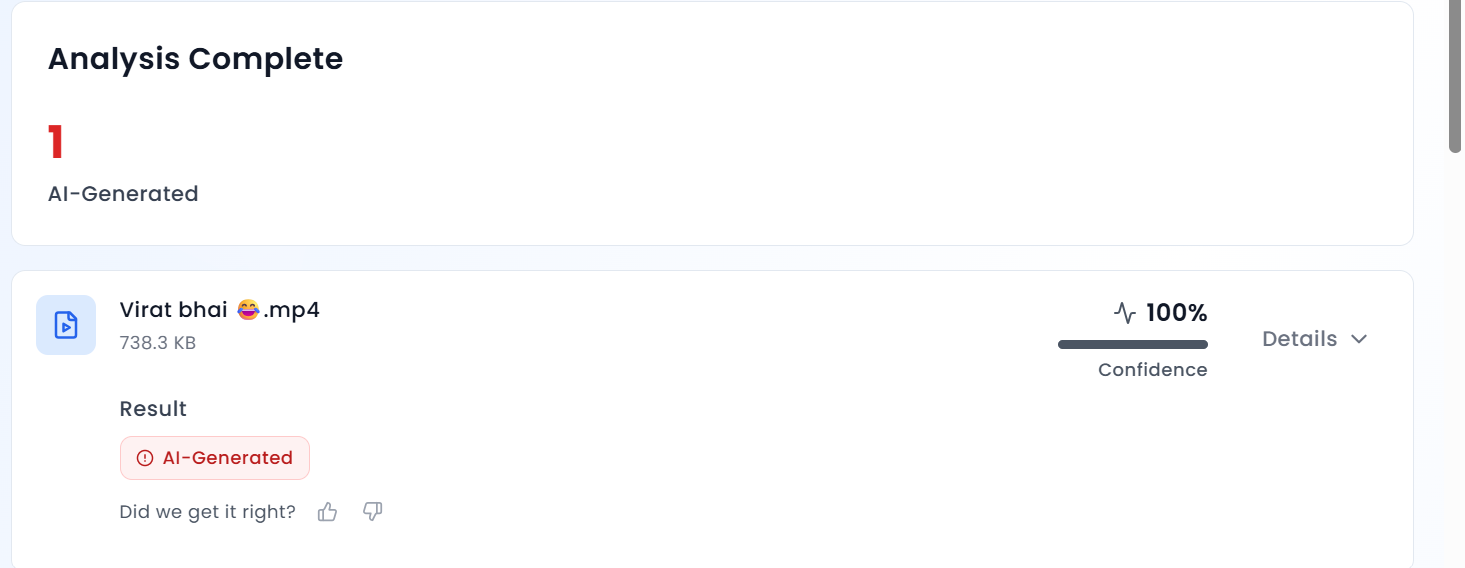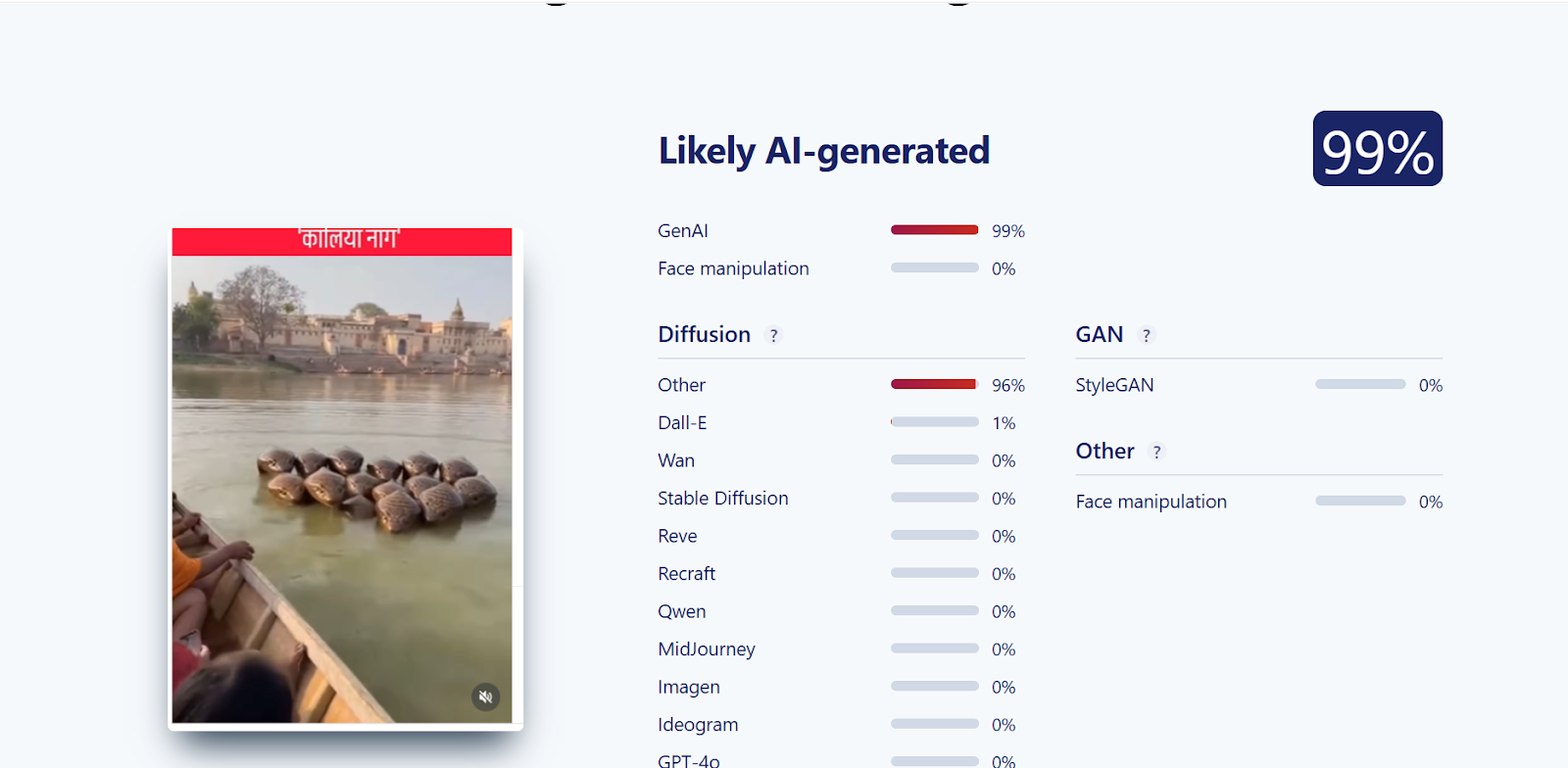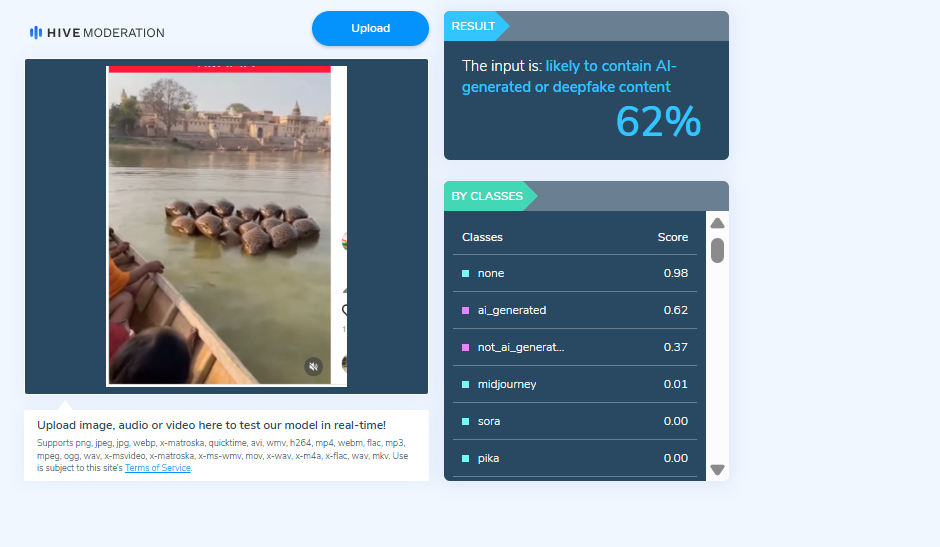#FactCheck - AI Manipulated image showing Anant Ambani and Radhika Merchant dressed in golden outfits.
Executive Summary:
A viral claim circulated in social media that Anant Ambani and Radhika Merchant wore clothes made of pure gold during their pre-wedding cruise party in Europe. Thorough analysis revealed abnormalities in image quality, particularly between the face, neck, and hands compared to the claimed gold clothing, leads to possible AI manipulation. A keyword search found no credible news reports or authentic images supporting this claim. Further analysis using AI detection tools, TrueMedia and Hive Moderator, confirmed substantial evidence of AI fabrication, with a high probability of the image being AI-generated or a deep fake. Additionally, a photo from a previous event at Jio World Plaza matched with the pose of the manipulated image, further denying the claim and indicating that the image of Anant Ambani and Radhika Merchant wearing golden outfit during their pre-wedding cruise was digitally altered.

Claims:
Anant Ambani and Radhika Merchant wore clothes made of pure gold during their pre-wedding cruise party in Europe.



Fact Check:
When we received the posts, we found anomalies that were usually found in edited images or AI manipulated images, particularly between the face, neck, and hands.

It’s very unusual in any image. So we then checked in AI Image detection software named Hive Moderation detection tool and found it to be 95.9% AI manipulated.

We also checked with another widely used AI detection tool named True Media. True Media also found it to be 100% to be made using AI.




This implies that the image is AI-generated. To find the original image that has been edited, we did keyword search. We found an image with the same pose as in the manipulated image, with the title "Radhika Merchant, Anant Ambani pose with Mukesh Ambani at Jio World Plaza opening”. The two images can be compared to verify that the digitally altered image is the same.

Hence, it’s confirmed that the viral image is digitally altered and has no connection with the 2nd Pre-wedding cruise party in Europe. Thus the viral image is fake and misleading.
Conclusion:
The claim that Anant Ambani and Radhika Merchant wore clothes made of pure gold at their pre-wedding cruise party in Europe is false. The analysis of the image showed signs of manipulation, and a lack of credible news reports or authentic photos supports that it was likely digitally altered. AI detection tools confirmed a high probability that the image was fake, and a comparison with a genuine photo from another event revealed that the image had been edited. Therefore, the claim is false and misleading.
- Claim: Anant Ambani and Radhika Merchant wore clothes made of pure gold during their pre-wedding cruise party in Europe.
- Claimed on: YouTube, LinkedIn, Instagram
- Fact Check: Fake & Misleading










